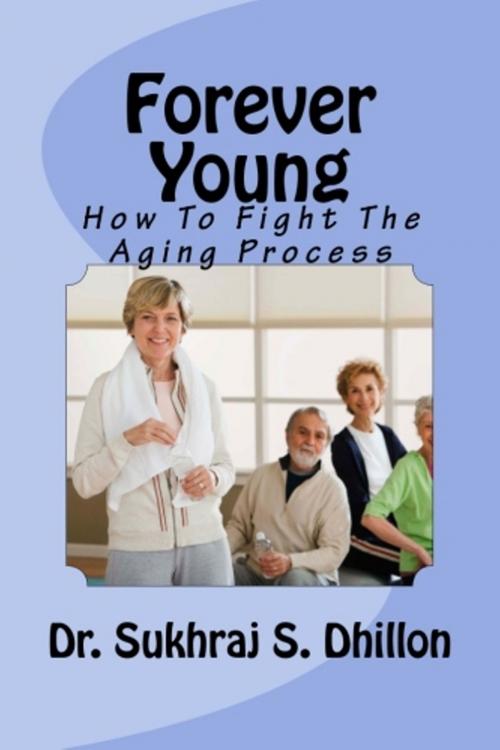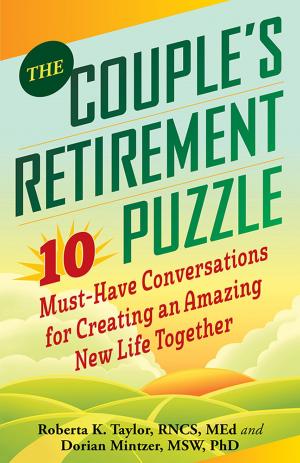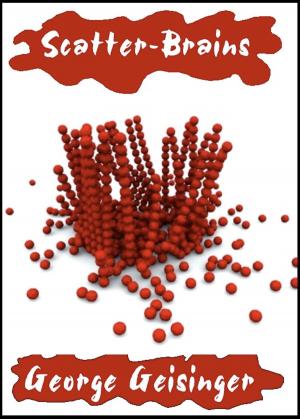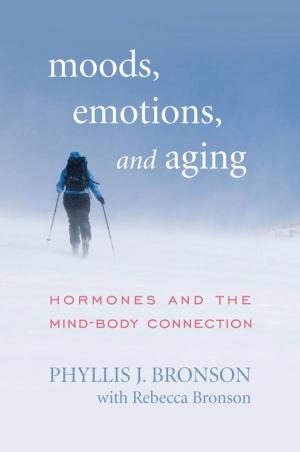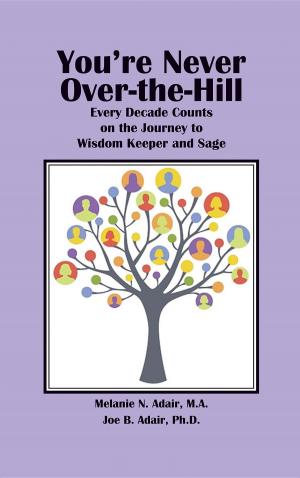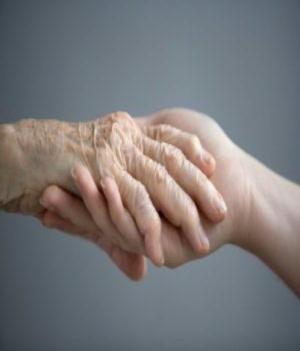| Author: | Dr. Sukhraj Dhillon | ISBN: | 9781458003522 |
| Publisher: | Dr. Sukhraj Dhillon | Publication: | February 8, 2011 |
| Imprint: | Smashwords Edition | Language: | English |
| Author: | Dr. Sukhraj Dhillon |
| ISBN: | 9781458003522 |
| Publisher: | Dr. Sukhraj Dhillon |
| Publication: | February 8, 2011 |
| Imprint: | Smashwords Edition |
| Language: | English |
Forever young isn't just about adding years to your life or for seniors only. It's about helping you function at peak capacity throughout life, feeling great, and being able to do all the things that make life worth living. It's about being biologically or functionally young, regardless of your chronological age.
You will find not only scientific theories about aging and how to apply for keeping young. But common sense tips and lifestyles of centenarians: Adopt the Life Style associated with Longevity--regular exercise, low fat diet, no smoking, moderate drinking, sleeping seven or eight hours-but not less than six or more than nine, using mental abilities, discipline, altruism, optimism, spiritual faith and above all love of life. The list continues to include active life-having a reason for living, an active sex life, controlling stress, good marriage and social life, proper use of lungs, intercostal muscles and diaphragm for specific deep Breathing Exercises to Slow Aging.
Before you can prevent, slow or reverse them--Recognize Signs of Aging that may include: (1) Decreased lung function (2) Change in pupil size-indicated by reduced illumination or decreased ability to focus (3) Bone loss (4) Sleep variations (5) Physiological changes that are mostly familiar to us--wrinkled skin, loss of stature, poor blood circulation, decreased short-term memory and other sensory loss.
The book recommends based on scientific findings: (1) Use antioxidants such as Vitamins E and C, and Selenium (2) Lower polyunsaturated (vegetable oils) fat in diet (3) Diet to slow autoimmune aging (4) Consume Nucleic Acids (DNA, RNA) to repair age-related damage. (5) Use of Melatonin (non-prescription hormone that body produces naturally but its production declines with age) is promising -- but we're not sure about long term effects. (6) Keep Young with Biochemicals that are SAFE and NATURAL such as certain vitamins, and enzymes--many of them are present in natural foods.
This guide also gives some tests of biological or functional age. Do it for fun with your family and see how people of different ages score.
Forever young isn't just about adding years to your life or for seniors only. It's about helping you function at peak capacity throughout life, feeling great, and being able to do all the things that make life worth living. It's about being biologically or functionally young, regardless of your chronological age.
You will find not only scientific theories about aging and how to apply for keeping young. But common sense tips and lifestyles of centenarians: Adopt the Life Style associated with Longevity--regular exercise, low fat diet, no smoking, moderate drinking, sleeping seven or eight hours-but not less than six or more than nine, using mental abilities, discipline, altruism, optimism, spiritual faith and above all love of life. The list continues to include active life-having a reason for living, an active sex life, controlling stress, good marriage and social life, proper use of lungs, intercostal muscles and diaphragm for specific deep Breathing Exercises to Slow Aging.
Before you can prevent, slow or reverse them--Recognize Signs of Aging that may include: (1) Decreased lung function (2) Change in pupil size-indicated by reduced illumination or decreased ability to focus (3) Bone loss (4) Sleep variations (5) Physiological changes that are mostly familiar to us--wrinkled skin, loss of stature, poor blood circulation, decreased short-term memory and other sensory loss.
The book recommends based on scientific findings: (1) Use antioxidants such as Vitamins E and C, and Selenium (2) Lower polyunsaturated (vegetable oils) fat in diet (3) Diet to slow autoimmune aging (4) Consume Nucleic Acids (DNA, RNA) to repair age-related damage. (5) Use of Melatonin (non-prescription hormone that body produces naturally but its production declines with age) is promising -- but we're not sure about long term effects. (6) Keep Young with Biochemicals that are SAFE and NATURAL such as certain vitamins, and enzymes--many of them are present in natural foods.
This guide also gives some tests of biological or functional age. Do it for fun with your family and see how people of different ages score.
